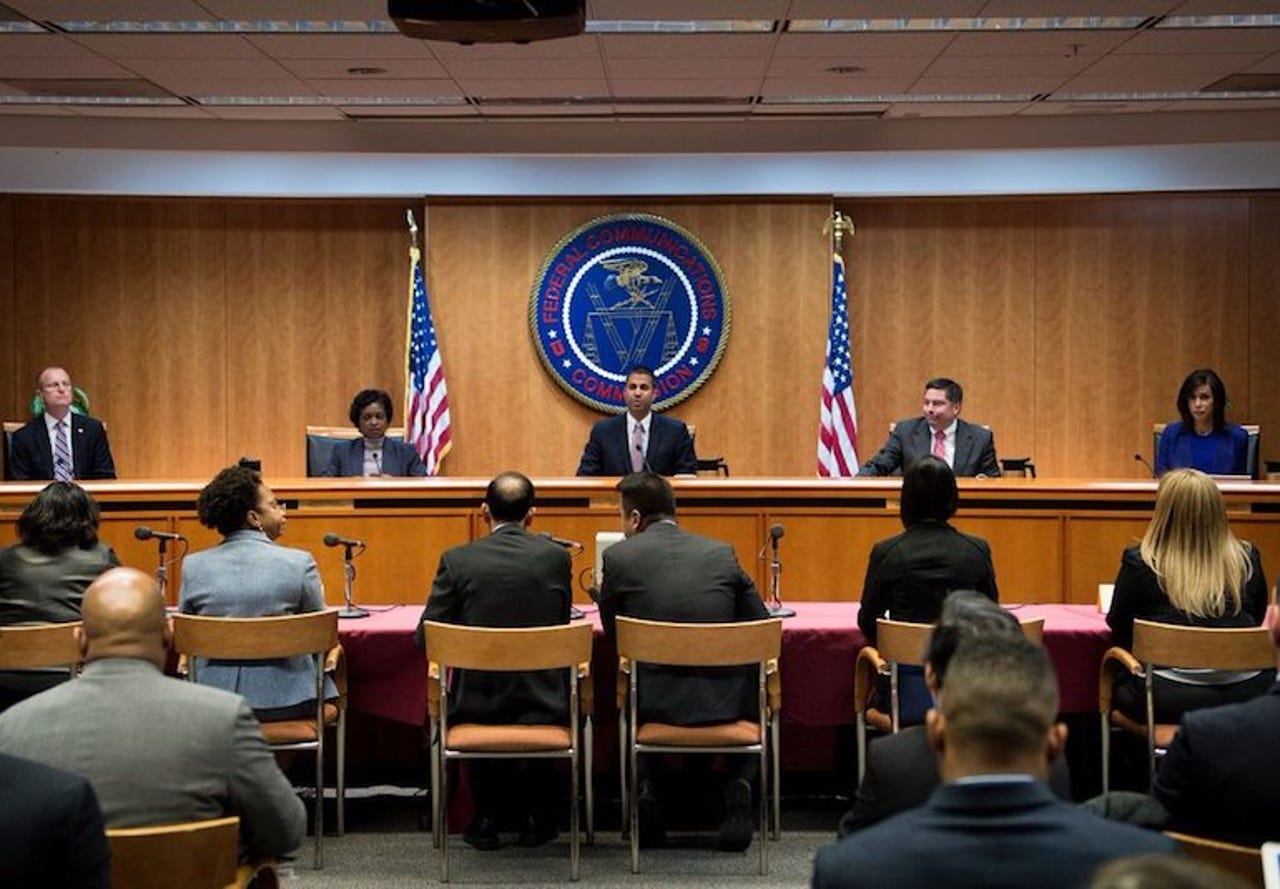FCC votes to repeal Obama-era net neutrality rules


(Image: screenshot via C-SPAN)
The Federal Communications Commission has voted 3-2 to repeal net neutrality rules.
The Obama-era rules, introduced in 2015, require internet providers to treat all internet content equally.
Welcome back, sneakernet
Ajit Pai, chairman of the FCC, introduced the proposal to repeal net neutrality in April. His proposal was pitched as a "return to the light-touch regulatory framework" that governed the internet before the FCC imposed Title II regulations on ISPs in 2015. Previously, broadband service was classified as a Title I information service.
But critics have long argued that repealing the rules would harm Americans' access to sites and services.
Read more: Sister-site CNET has more analysis on the rules' repeal and what it means for you | TechRepublic: Net neutrality: The smart person's guide | ZDNet: Welcome back, sneakernet: Why net neutrality repeal will drive us to the edge | CBS News: FCC repeals rules that affect internet speed
Pai, a former Verizon lawyer, voted in favor of his motion, alongside fellow Republican appointed members Michael O'Rielly and Brendan Carr.
Jessica Rosenworcel and Mignon Clyburn, the two minority Democratic commissioners, dissented.
Pai, in prepared remarks delivered shortly before the vote, said: "By returning to the light-touch Title I framework, we are helping consumers and promoting competition."
"Broadband providers will have stronger incentives to build networks, especially in unserved areas, and to upgrade networks to gigabit speeds and 5G. This means there will be more competition among broadband providers. It also means more ways that startups and tech giants alike can deliver applications and content to more users. In short, it's a freer and more open Internet," Pai added.
Many privacy and rights groups, including the American Civil Liberties Union (ALCU) denounced the move, and vowed to fight the repeal.
"Today's FCC vote means that we will start to see the telecommunications companies intruding more on how we use the internet and becoming much more aggressive in their efforts to make money off their role as online gatekeepers," said the ACLU's Jay Stanley in remarks.
Several members of Congress also called on the FCC to cancel Thursday's vote, amid concerns that the repeal will have an "impact on the free market."